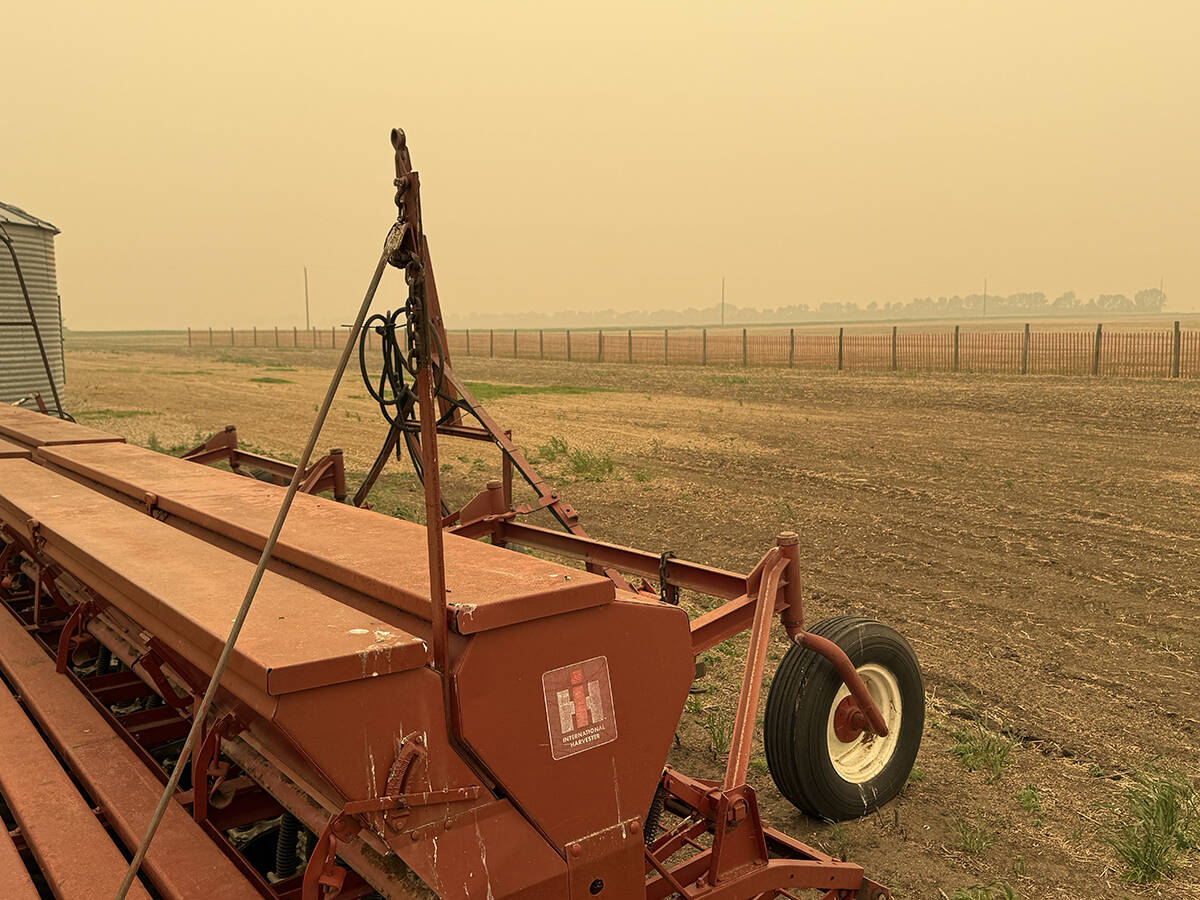A tepid export performance by western agriculture during the past 12 years is not necessarily a reflection of declining competitiveness in the sector, says a prairie-based economic researcher.
According to an analysis prepared by the Western Centre for Economic Research (WCER) at the University of Alberta, exports from Western Canada since 1995 have barely kept pace with economic growth and Canada’s share of world exports had shrunk.
Major agricultural exports including canola seed, live cattle and wheat are part of the picture with the value of exports increasing little over those years since the North American Free Trade Agreement and the last global General Agreement on Tariffs and Trade deal took effect.
Read Also

Wildfires have unexpected upside this year
One farmer feels smoke from nearby wildfires shrouded the July skies and protected his crop from the sun’s burning rays, resulting in more seeds per pod and more pods per plant.
“I don’t think it was a case of a fundamental change in Canadian agriculture’s competitiveness,” WCER director Helmut Mach said. “It also was a result of what has been happening around the world, as well as some domestic policies and issues.”
He said a major problem has been farmers in competing countries, particularly the United States and the European Union, received far higher subsidies during those years than Canadian farmers.
It made Canadian producers less competitive.
At the same time, developing countries like Brazil, India and China that once were major importers of Canadian agricultural commodities have emerged over the past dozen years as agricultural powerhouse economies and export competitors.
Add to that the BSE outbreak that limited Canadian beef exports, a high Canadian dollar that reduced the export price of commodities and a prolonged bout of low grain prices and the agricultural results are not surprising, he said.
Rising input costs also have been a major competitive factor, he said.
It is one of the reasons some prairie grain producers want to end the Canadian Wheat Board single desk to give themselves more opportunity to export directly and to value-add on the Prairies, according to Mach.
It is also a reason why many prairie farmers were hoping for a World Trade Organization deal this year that would end export subsidies by 2013 and require a sharp reduction in domestic subsidies around the world.
WTO director general Pascal Lamy recently halted attempts to win agreement on the principles of a deal this year, hoping that negotiations can resume again next year.
“Now with the delay there is every prospect of continued uncertainty and the U.S. has some subsidy room it can fill so this is not good news for the agriculture sector here,” Mach said
The report from the U of A economic research group, published by the Canada West Foundation, said the value of canola seed exports in 2007 was 58 percent higher than in 1995. Live cattle exports were only 29 percent higher and wheat exports 18 percent.
The study reported that over those 12 years, western exporters became more dependent on North American customers while their share of the fast-growing Asian markets fell.
The Canada West Foundation called for bilateral trade agreements with emerging markets such as China and India.
“On the whole, Western Canada’s exports have not shown a stellar performance,” Mach said.














